Students pitch their big ideas to leading sustainability experts
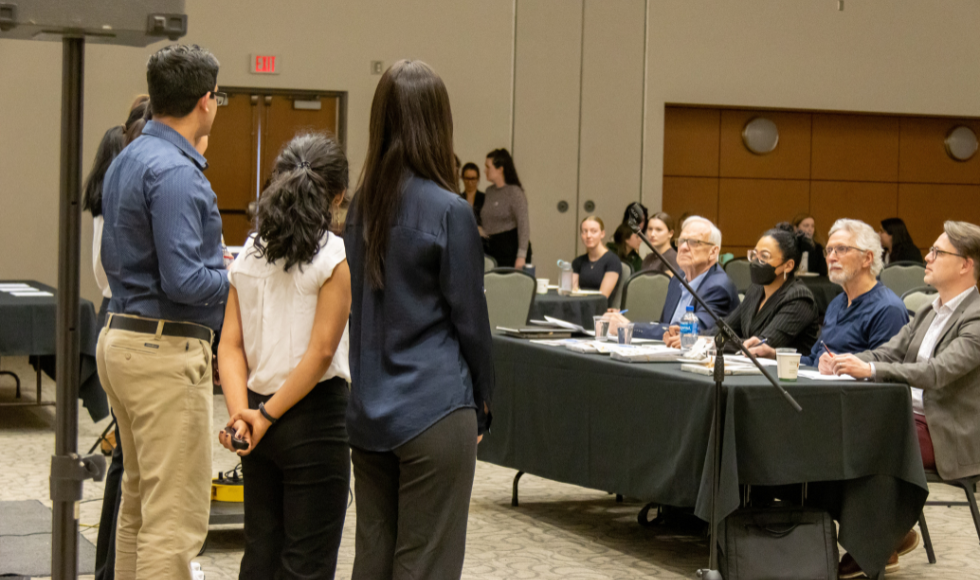
49 students pitched their big ideas at McMaster’s second annual Sustainable Development Goals (SDG) pitch competition on the evening of March 13th. All photos by Yifan Wang.
How would you increase sustainable travel to campus, improve active mobility around the city and support international collaboration considering the social, ecological and economic impacts?
Students from across campus accepted these challenges, pitching their ideas at McMaster’s second annual Sustainable Development Goals (SDG) pitch competition on the evening of March 13th.
49 students formed 19 teams, pitching their ideas to a panel of leading sustainability experts. One team from each of the three challenges walked away with a $2,000 prize.
The pitch competition was part of SDG Week across Canada, raising awareness and inspiring action toward the United Nation’s 17 Sustainable Development Goals, which include Good Health & Well-being, Reduced Inequalities and Climate Action.
With these goals in mind, students leveraged insights gained through networking with topic experts, project briefs on the challenge webpage and their creative problem-solving skills.
All teams pitched to topic experts from academia, community and industry. The nine finalist teams then pitched to a panel of leading sustainability experts who selected the winning teams based on their ability to address the problem, the feasibility of their solution and the potential for impact.
Here are the winners:
McMaster Challenge – Wheel-y Secure: Improving Bike Security and Storage
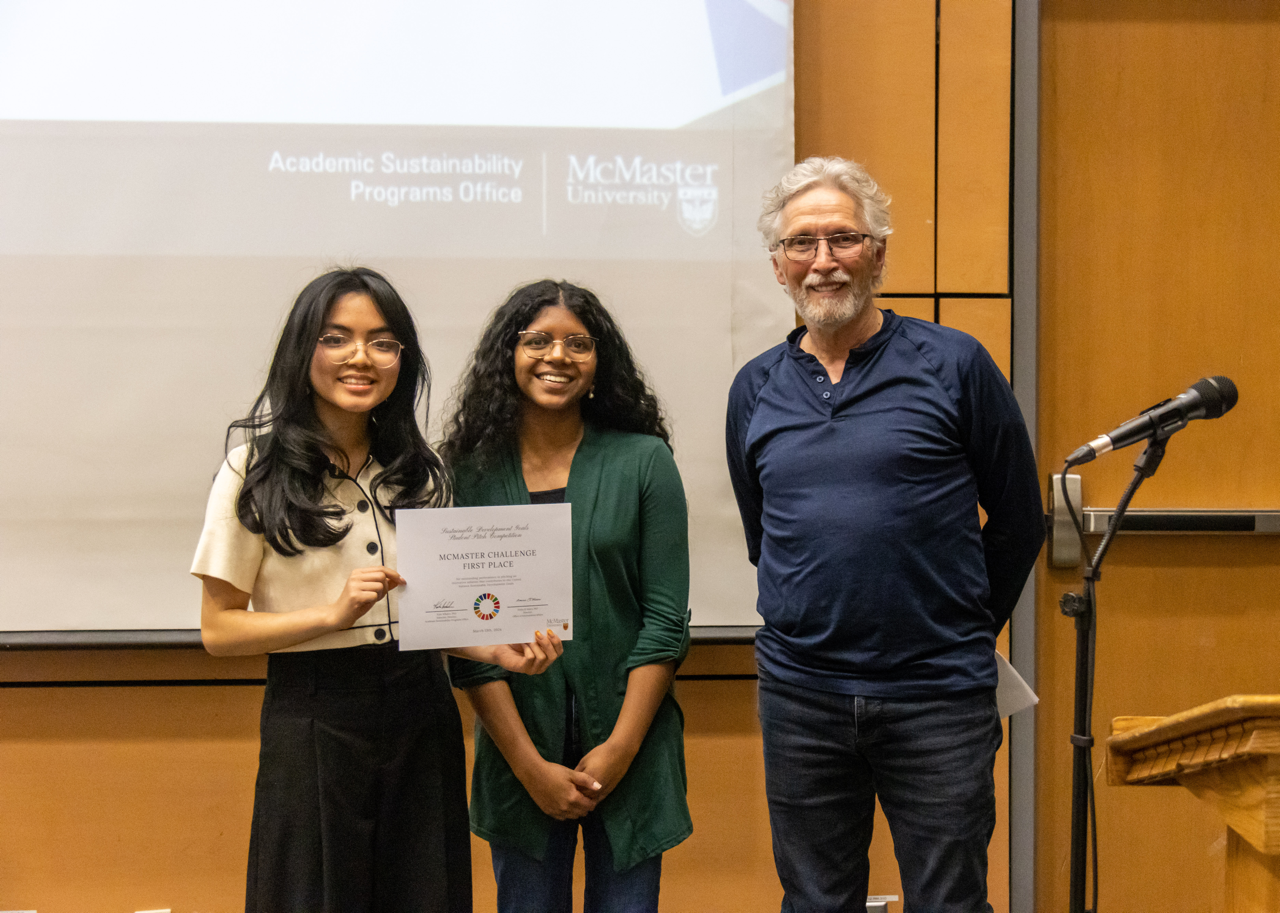
“Our idea was for innovative, secure bike storage, which is such a simple solution to a problem that affects so many who bike or consider biking. Speaking with McMaster’s parking director about how our idea could be implemented on campus was such a unique and valuable opportunity,” says Uthaykumaran.
“The competition was a fun way to learn about the SDGs and contribute to sustainability on campus. We got the opportunity to talk with the parking director, who has been looking to improve secure bike storage, about making it free to further encourage biking campus,” says Rasco.
City Challenge – Play the Way Hamilton
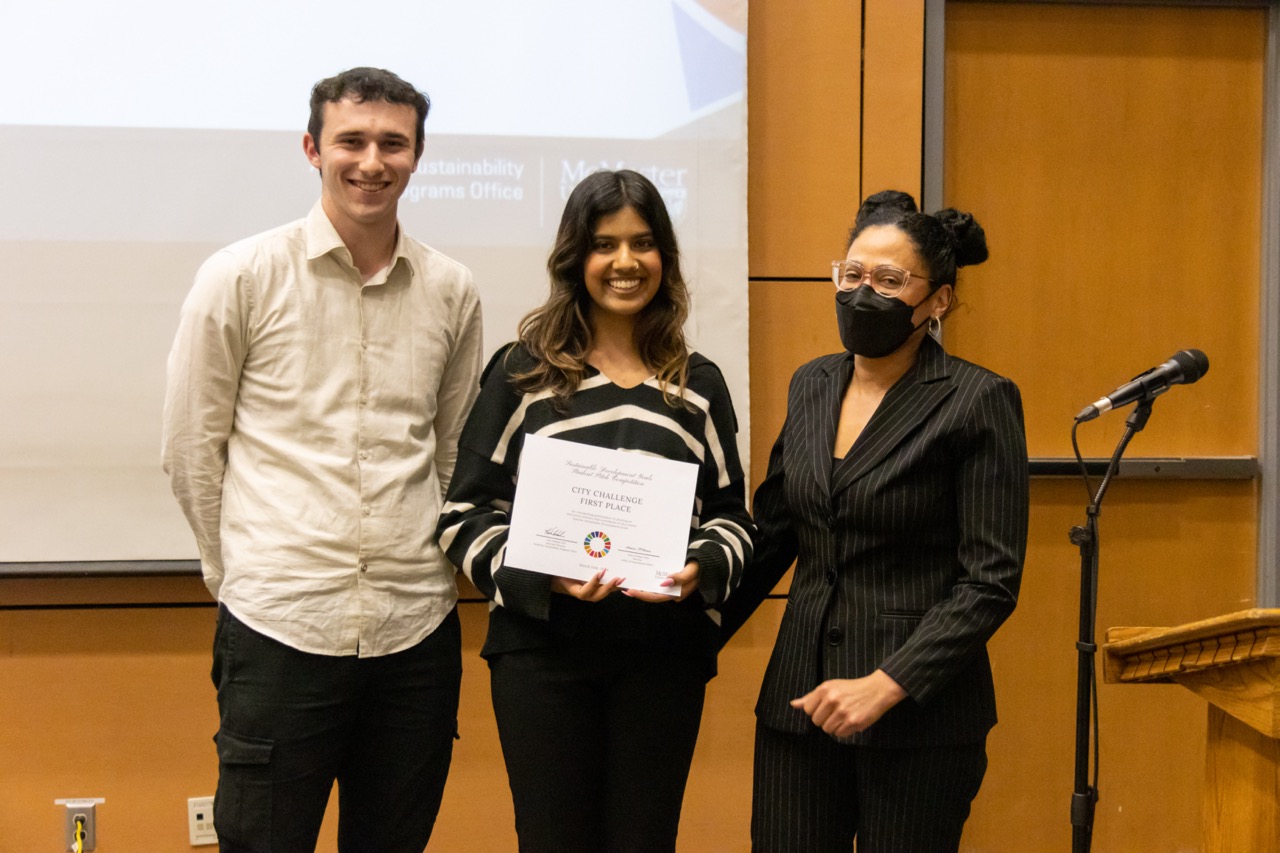
“Our idea to increase active travel in Hamilton was to collaborate with local artists to creatively paint students’ routes to school to encourage playful and interactive travel,” describes Hemraj.
“The competition was a great way to share our ideas and get feedback to help us actually implement them in our local communities,” says Begun.
International Challenge – Collaborative Sustainability: A Global Perspective
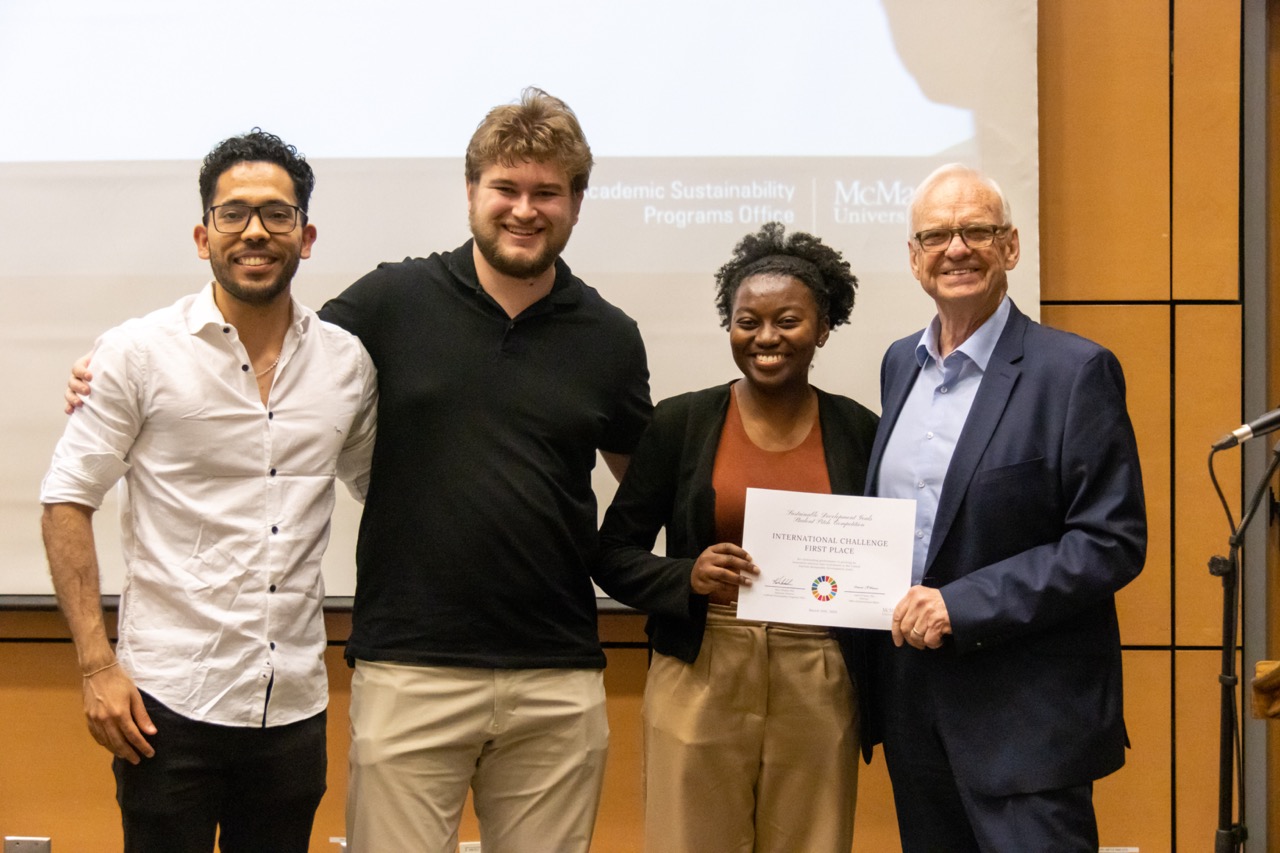
“We pitched a set of SDG-focused standards and policies that all universities and event organizers can implement when organizing conferences and large international collaborative events,” Explains Budu. “For example, increasing collaboration and reducing conference redundancy, therefore reducing transportation-related emissions.”
“It was an amazing learning experience to be in the International Challenge.” Says Maestre. “We were able to collaborate, develop and share our creative and innovative ideas, while integrating our engineering knowledge.”
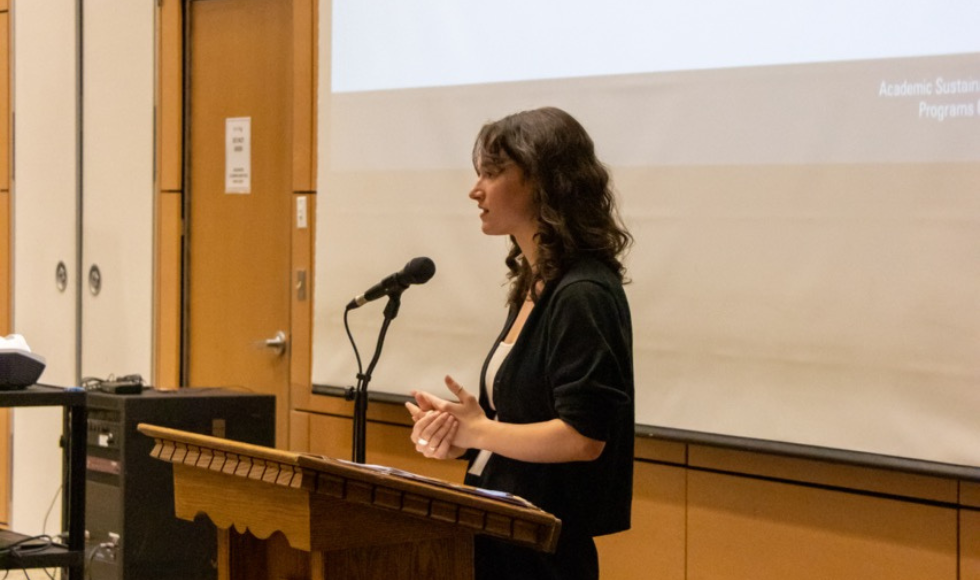
For Health Sciences student Roxann Forget, who served as the competition lead and master of ceremonies, the evening was a display of the creativity and ambition of her peers.
“I feel honoured to have been able to hear so many innovative and creative ideas from students from a variety of disciplines,” says Forget, a member of McMaster’s Academic Sustainability Programs Office.
“I feel empowered as a student to uplift other student voices so they could share and action their ideas.”
First-round judges were Robert Morallee, from McMaster’s Parking Services, David Cano from McMaster’s Office of Sustainability, Anastasia Soukhov, from McMaster’s Faculty of Science, Daniel Chong from the Daily School Route, Mark Anderson from Cycle Hamilton, Charles Ballarano and Alison Carlyle from the City of Hamilton, Katrin Kohl from York University, Tony Porter from McMaster’s Faculty of Social Science, and Karen Balcom from McMaster’s Office of Community Engagement.
Finalist judges were Matheus Grasselli, Deputy Provost at McMaster University, Mark Chamberlain, President of PV Labs and co-founder of Bike for Mike not-for-profit, Beatrice Ekoko, Project Manager at the Office of Climate Initiatives for the City of Hamilton, and Charles Hopkins, UNESCO Chair in Reorienting Education towards Sustainability at York University.
McMaster’s Academic Sustainability Programs Office facilitated this event in collaboration with and with financial support from the Office of International Affairs, Office of the Provost, and the Office of Sustainability.
Learn more about this year’s SDG pitch competition by following @MacSustain on Instagram. Stay tuned for future iterations of this event!


